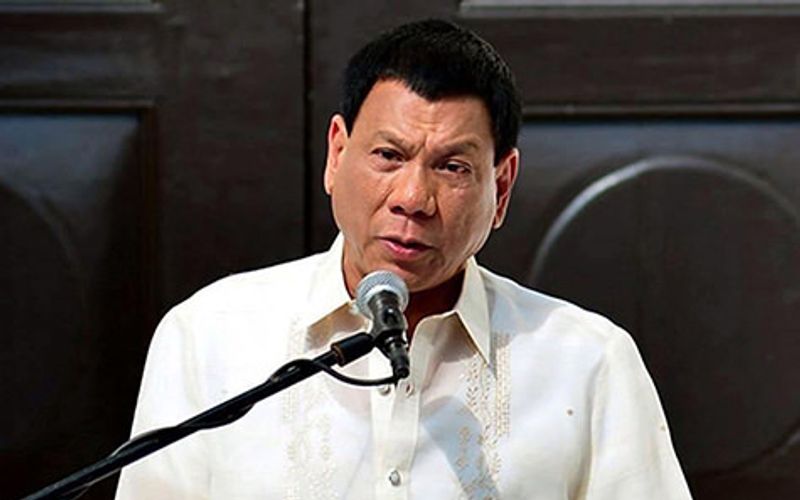Blog
Debate over Marcos burial a red herring for Duterte’s Marcos Lite
On Sept. 7, there will be protests at every Philippine Embassy and consulate throughout the world, including New York and San Francisco, as part of a massive global demonstration against the proposed hero’s burial for the late dictator Ferdinand Marcos.
Will it match the kind of anti-Marcos fervor the U.S. and the world saw in the 1980s? The kind that brought on “People Power” 30 years ago?
If it does, it could be enough to sway the Philippine Supreme Court, which has heard petitions both for and against the issue and is expected to make a ruling before a planned burial date later in September.
But I think the burial issue is just a cover for a real second coming of Marcos, only this time it’s in the form of the country’s new president, Rodrigo Duterte.

That would make this week a great time to reawaken the kind of Filipino American activism the world hasn’t seen since the fervor of the Marcos era.
What better way to show Duterte and the world that Filipino lives matter, past and present.
I’ve always said Filipino Americans suffer from general anonymity in the U.S. because the leader of their ancestral home has been nothing quite like the old dictator of the ’70s and ’80s.
Marcos kept Filipinos on the radar everywhere.
When the Marcos regime was linked to human rights abuses ranging from political torture, disappearances, and deaths, few could ignore the news. Except, of course, the Reagan and Bush administrations at the time, which continued to support Marcos.
That disconnect kept Filipino issues alive in the U.S.
But since Cory Aquino’s “People Power” toppled Marcos in 1986, the Philippines lost its newsy buzz.
What people know or don’t know about the Philippines is astonishing. More astonishing is that things have seemingly gone on without much change in the Philippines, and people outside the country barely seem to care anymore.
“Isn’t that the way it always is in the Philippines?” seems to be the prevailing attitude. And American Filipinos, the vast majority of whom are immigrants who left the country because of Marcos, are just happy to smile and move on.
Except now.
And it’s all because of the new president Rodrigo Duterte–the man who initiated the proposal for Marcos’ burial and is paving the way for a new kind of martial law–likes to stay in the radar.
Though Kim Jong Un would probably give Duterte a run for his money, some call Duterte the Trump of Asia, a man who will do anything or say anything just to get a rise.
You mean like calling President Obama a “son of a bitch”? He did that on Monday.
“Who does he think he is?” Duterte said in a speech responding to White House officials saying Obama would confront Duterte on his handling of drug dealers and extrajudicial killings–essentially government executions without judicial proceedings–that have taken place during his short presidency.
“I am no American puppet. I am the president of a sovereign country, and I am not answerable to anyone except the Filipino people,” Duterte said. “Son of a bitch, I will swear at you.”
Duterte later regretted his comments after the White House cancelled its planned meetings with Duterte on Tuesday.
But this is how tough guy politics works in the Philippines.
Walden Bello, a Philippine scholar trained at Princeton, a professor at Kyoto and at SUNY-Binghamton, and a former member of the Philippine House of Representatives, said Duterte is Trump to a point.
“Yes, there are parallels,” Bello told me in an interview. “But though Duterte’s actions may strike some as spontaneous and not well-thought-out, my sense is that they spring from conviction, and it’s just the timing and crude expression that are off. The decision on Marcos was not impulsive; he had given that some thought and he meant it to honor a role model.”
And that’s an even better reason for the global protest this week.
It’s really the first time the world can send a signal to Trumpy Duterte that he may have gone too far.
Or that he needs a better role model.
Bello told me the tragedy of the post-Marcos era is that the oligarchs failed to educate the public, specifically a new generation of Filipinos, on the human rights abuses of Marcos.
He also blamed the elites for doing nothing to alleviate the great poverty and inequality in the country. They left a struggling democracy like the Philippines susceptible to Duterte’s trumpiness.
“This near absence of social reform is one of the reasons that so many people voted for an authoritarian messiah like Duterte, who might end up scrapping the current system, bringing us full circle to 1972,” said Bello.
Ah, 1972.
The year President Ferdinand Marcos first instituted martial law in the Philippines, Sept. 23, 1972.
Now 44 years later, after bombings killed 14 people over the weekend in the Philippines, Duterte has signed a formal declaration that his country is in “a state of lawlessness.”
What’s that mean? Is it one step away from martial law? Duterte said it’s his “invitation” for the military and police “to run the country in accordance with my specifications.”
A large global protest this week over the rehabbing of Marcos’ image would show Duterte the world is watching the evolution of his own image as “Marcos Lite.”

Emil Guillermo is an independent journalist/commentator. Updates at www.amok.com. Follow Emil on Twitter, and like his Facebook page.
The views expressed in his blog do not necessarily represent AALDEF’s views or policies.
Read Emil's full bio →